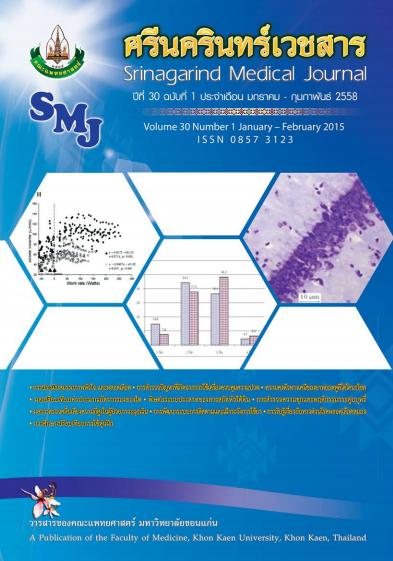Neurotoxic Effect of Stephania venosa Tubers Extract in Male Rats
Keywords:
Neurotoxicity, Stephania venosa, Cerebral cortex, HippocampusAbstract
Background and Objective: Stephania venosa (SV), especially its tuber, is traditionally claimed to be effective treatment of cancer and acted as agent for treatment of Alzheimer’s disease. However, the neurotoxicity of this plant in prolonged administration has never been documented. Therefore, this study was aimed to investigate the neurotoxic effects of SV tuber extract in male rats.
Methods: The ethanol extract of tuber SV were used for the experiment. The male rats were orally administered with vehicle or the SV extracts at various doses ranging from 5, 10 and 20 mg kg-1 once daily, for 4 weeks. All rats were evaluated the neuronal density of both cerebral cortex and hippocampus by cresyl violet staining.
Results: The results show that all dosages of SV extracts significantly decreased the neuronal density of cerebral cortex (frontal, parietal, temporal, and occipital cortex) and hippocampus (CA1, CA2, CA3, and dentate gyrus) compared to those controls.
Conclusion: The resent study demonstrated that the prolonged administration of alcoholic extract of SV tubers is neurotoxic to cerebral cortex and hippocampus of male rats.




